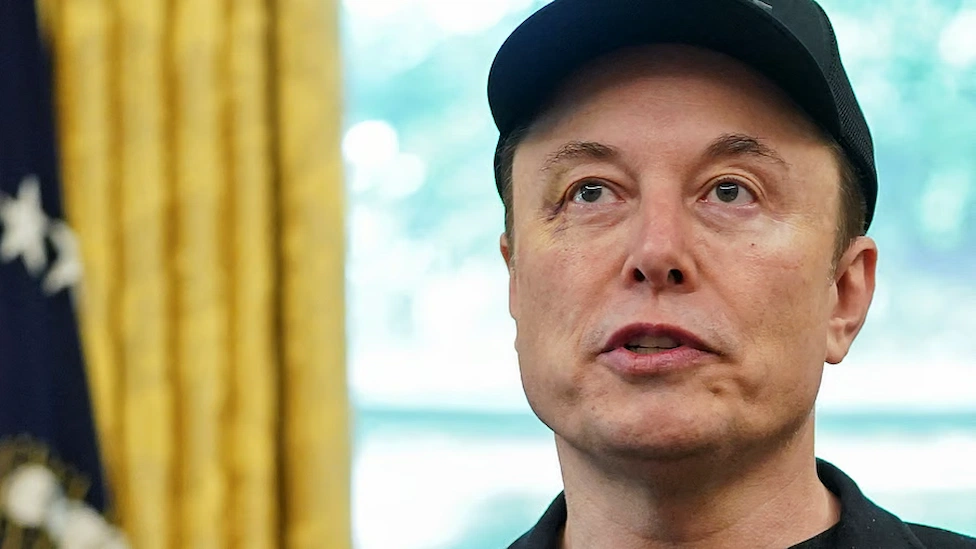Elon Musk’s Tax Bill Criticism: Elon Musk’s tax bill criticism escalated on Tuesday, June 3, 2025, after he slammed a new spending bill backed by Donald Trump. Musk called the bill a “disgusting abomination” and warned it would grow the U.S. deficit. The House passed the bill by one vote last month.
It now heads to the Senate, where it may be revised. Musk recently stepped down from a federal role and said the bill threatens U.S. financial stability. His statements have drawn wide attention as Congress debates the next steps for the legislation.
Also Read | Trump Travel Ban 2025: US Restricts Entry from 12 Countries, Adds Visa Limits
Elon Musk’s Tax Bill Criticism: Insights
- Musk called the bill “pork-filled” and said it worsens the federal debt.
- The bill extends the 2017 tax cuts passed during Trump’s first term.
- The Congressional Budget Office says it will add $3.8 trillion to the national debt.
- Musk recently left his formal government role to focus on cost-cutting.
- Trump and the White House stand by the bill despite Musk’s criticism.
- Senate Majority Leader John Thune says the Senate will still proceed.
Background
The bill in question would extend Trump’s 2017 tax cuts. Those cuts were a significant part of his first term. Supporters say the bill will help working Americans. But critics argue it worsens the national debt. The Congressional Budget Office reports the bill could add $3.8 trillion to U.S. debt.
That would raise the current $36.2 trillion total even higher. Musk had worked with the Trump administration on government efficiency. But his cost-saving efforts ended with limited success. Now, he is voicing strong opposition.
Main Event
On Tuesday, Elon Musk’s tax bill criticism reached new heights on X, formerly Twitter. Musk wrote that he “can’t stand it anymore” and called the bill a “massive, outrageous” spending plan. He accused lawmakers of betraying public trust. The House narrowly passed the bill last month. It now awaits debate and possible revisions in the Senate.
The bill would continue the 2017 tax cuts and increase the national debt by $3.8 trillion. Musk argues this will push the annual deficit to $2.5 trillion. He said such debt is not sustainable and harms American citizens.
Musk recently ended his role as a special government employee focused on cost-cutting. He claims the bill undercuts all progress made by the Department of Government Efficiency. In a final interview, he warned that unchecked spending will weaken U.S. finances for a long time.
The White House dismissed Musk’s remarks. A spokeswoman said President Trump knows Musk’s stance but will not change. Trump remains confident in the bill’s benefits. Senate Majority Leader John Thune also responded. He said the Senate would proceed and hoped Musk would change his view after reviewing the bill again.

President Donald Trump presents a ceremonial key to Elon Musk during a White House press briefing in the Oval Office on May 30, 2025.
Photo Credits: AP Photo.
Implications
The growing criticism of Elon Musk’s tax bill could impact public opinion and media coverage of the bill. Critics may use his statements to push for changes, and lawmakers in the Senate may face more pressure to revise the plan. The rising national debt is already a concern for many economists.
Businesses and taxpayers worry about long-term financial risks. Musk’s high-profile status brings more focus to the debate. However, the White House remains firm on passing the bill in its current form.
Conclusion
Elon Musk’s tax bill criticism has added new urgency to the ongoing political debate. As the Senate reviews the bill, some expect changes, while others push forward. Musk’s concerns echo broader fears about the U.S. deficit and spending. Whether his comments lead to fundamental changes remains to be seen.
For now, lawmakers must decide how to balance growth, tax cuts, and national debt.



